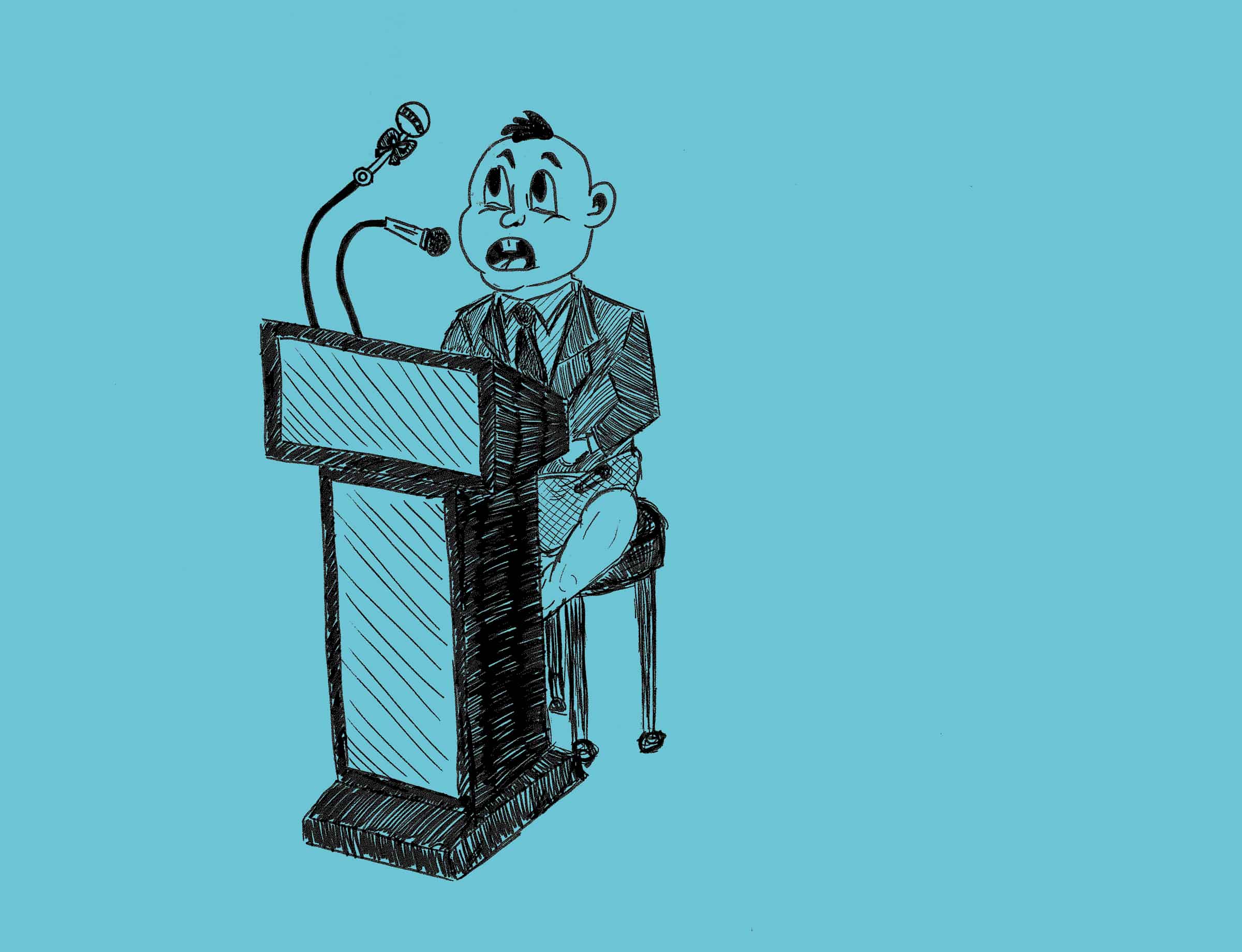Debate Club is a column that pits writers head-to-head on questions that matter to students. Though it lacks the shaky knees and microphone feedback screeches that typically accompany any oratory competition, rest assured that Debate Club is not for the faint of heart.
Resolution: “Be it resolved that more people under 30 years of age should run for political office.”
In favour: Zach Rosen (ZR), first-year History and Philosophy student at Trinity College
Opposed: Sam Routley (SR), second-year Political Science, History, and Philosophy student at St. Michael’s College.
ZR: Ours is a time of widespread political instability and acute mistrust in traditional political institutions. Lack of political experience has become an asset for a political candidate — a trend that may soon continue here in Canada if Kevin O’Leary gets his way.
What is needed now is not more of the same; old-timers well-versed in the dos and don’ts of politics will no longer gain the public’s trust easily. We need new blood, new ideas, new visions, and new dreams. We need a revitalization of the system and a renewed faith in politics itself. More young people in politics would help bring about these changes.
SR: Though one may contend that the political landscape needs to be refreshed, this is not to be done by young people, but by experienced and mature adults. I agree that we don’t need more career politicians; we need the new perspectives of businessmen, diplomats, soldiers, doctors, academics, artists, industry workers, and all sorts of other professionals.
Young people are in the profession of learning, not governing; most do not yet possess the life experience, the knowledge, and the maturity to hold the authority that political office brings.
Instead, young people can bring their ideas to the table through other means of political activism, and in doing so, gain the necessary experience and knowledge for eventual political office.
ZR: According to the Parliament of Canada website, the average age of a Canadian parliamentarian is 51.5 years old, with only six out of 335 members being under the age of 30. While I concede that high school seniors are not likely to be fit to lead government, I certainly believe that people under 30 have a tremendous amount to contribute. Let’s be clear that I’m not talking about Parks and Recreation’s Ben Wyatt of ‘Ice Town’ fame or Sam Oosterhoff of homophobic notoriety.
As to the point about ‘learning the ropes’ through political activism, I can imagine no better training for politics than politics itself.
SR: Yet in most cases, young people who may have just graduated from post-secondary studies are just beginning their exposure to the real world. Though to a lesser degree than students, they do not possess the life skills and knowledge of experienced professionals, who can bring their accumulated assets from a lifetime of work. For instance, young people rarely have the experience of running a successful business through several financial shifts and recessions, something that for the most part comes only with time.
The role of young people should be to learn from those who have years of experience, before taking over themselves. In any professional situation, we do not seek out or readily trust those who are just learning on the job. Why should we not expect the same from our leaders, particularly considering the stakes of many political decisions? Politics can be learned from working with politicians, internships, and volunteering for campaigns — it does not have to be through governing.
ZR: Yet, the ideal young candidates for political office are not stoners who live in their parents’ basements or loafers who haven’t worked a day in their lives — in fact, they may be exactly the young businessmen, doctors, academics, and professionals referred to above.
Frankly, I just don’t buy the notion that someone in their 20s doesn’t have the intellectual capacity to contribute to government or to be a leader. In fact, they may bring with them a fresh perspective that is often sorely missing in political circles full of older individuals, particularly when it comes to creative or technologically innovative solutions to age-old problems.
Let’s also not forget that we are debating whether more young people should ‘run’ for office — if a young person is unqualified due to a lack of experience or knowledge, then we ought to let the constituency elect someone else, perhaps someone older. Participation should always be encouraged, not disparaged.
SR: It is certainly a good thing for young people to participate in politics — holding political office is just not the best means to do so. Some of the best examples of how young people can influence political decisions are by participating in social movements or campaigns.
Yet, the authority of political office — and the final decision-making role — is best held by those with the experience and wisdom gained only from a long life. Young people are best suited to participate through other means, support their ideal candidates, and take the time to learn and gain experience before taking such significant responsibility upon themselves.


